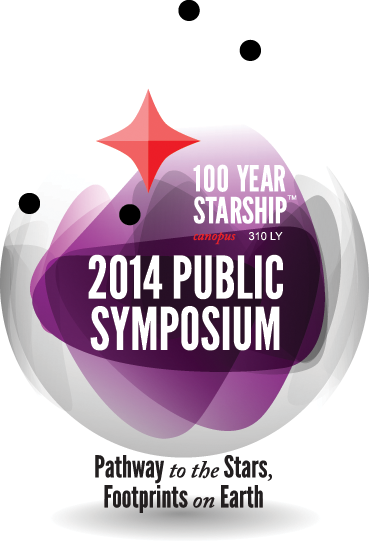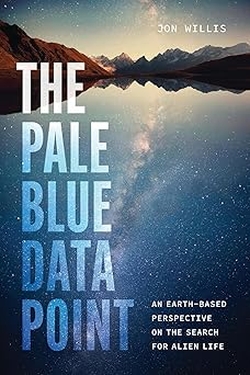2014 isn’t nearly as top-heavy with interstellar conferences as the year before, but we do have two to discuss this morning, both of them slated for fall in North America. Looking through the preliminary information, I’m remembering how many good sessions grew out of last year’s meetings. For a field that grew up fueled largely by the enthusiasm of individuals who met in person only rarely, we suddenly found ourselves with the 100 Year Starship conference in Houston, Icarus Interstellar’s Starship Congress in Dallas, two Starship Century events (one in London, one in San Diego), the Tennessee Valley Interstellar Workshop (version 2) and a London conference on what Bob Parkinson so wonderfully calls ‘the philosophy of the starship.’
Various smaller get-togethers occurred as well, and so, of course, did huge space-dominated conferences like the International Astronautical Congress and other aeronautics, astronautics and SETI sessions around the world. But who would have thought even ten years ago, much less fifty, that we would be having multiple conferences in a single year arranged around starship topics, and that groups dedicated to studying the possibilities of interstellar flight would be proliferating? A friend and I were musing that we found ourselves living in a science fictional world, and the thought came that it just seemed that way because we were getting older. And, of course, we are, but it’s also true that deep space really has become a highly visible topic.
100 Year Starship Symposium 2014
The theme for this year’s 100 Year Starship Symposium is Pathway to the Stars, Footprints on Earth, a nod to the synergies the organization continues to seek out between the huge advances in technology and biological science we’ll need as we anticipate deep space missions and the developing spinoff tools we’ll gain from such work to improve life on Earth today. The symposium will be held at the George R. Brown Convention Center in Houston from 18 to 21 September.
Although registration for the actual event has not yet begun, the call for papers is now active, with abstract submissions manageable through the symposium site. The deadline for abstracts is May 31, with notification of acceptance on June 30. Accepted presentations and poster submissions are then due on the 10th of September. Quoting from the submission guidelines:
Submissions can be perspectives on the central dogma, experimental results, and review of a specific topic. You must ensure that it fits the track topic to which you are submitting. Individual presentations will only be presented in one track. Individuals do not have to be associated with an institution to submit an abstract. Please note that materials should be non-commercial in content, any commercial presentation that communicates a service, technology or product can be submitted to our poster session.
Submissions will be reviewed based on bona fide field of inquiry/thought/research that derive from validated patents, literature, mathematics or practice. The data submitted should represent one or more of the following:
Actual data or background search generated presents a challenge to current dogma or asks a significant question
Data moves the field forward or clarifies some aspect of the field
Solves a problem acknowledged in the field
Provides a novel, well supported integration and/or review of field and proposes specific concept
Submitted abstracts are well written, 300 word, concise and includes a statement of the following items. If actual data, results and conclusions are not available, please provide a well thought out plan for how the information will be generated.
Background
Problem and hypothesis
Experimental design (or literature review)
Data
Results
Conclusions and Discussion
The tracks are available on the symposium site. They range from propulsion and energy to near-term spinoff technologies, data, communications and information technology, and major issues of life support and sociology. The data and communication track is a new one, highlighting recent work on data retrieval and transmission at interstellar distances. Also new at the 2014 symposium will be a track on interstellar education, looking at the role of education at producing what the site calls ‘interstellar citizens’ and probing current and future educational practices. Poster presentations are available for discussions in a small group setting.
Tennessee Valley Interstellar Workshop
The third Tennessee Valley Interstellar Workshop will be held November 9-12 in Oak Ridge, Tennessee at the DoubleTree by Hilton Hotel with a theme of Long-Term Thinking–Present-Day Action. I’ve recently received the call for papers for this event, which was originally conceived by Les Johnson, Greg Matloff and Robert Kennedy in a wonderful hotel in the Italian alps in the town of Aosta. I remember the setting well, having spent several days there at one of the earlier Aosta conferences — it’s a place where long-term thinking seems to come naturally. Have a look at the TVIW website for further background, including Les’ summation of the event:
“The Tennessee Valley Interstellar Workshop is an opportunity for relaxed sharing of ideas in directions that will stimulate and encourage Interstellar exploration including propulsion, communications, and research. The ‘Workshop’ theme suggests that the direction should go beyond that of a ‘conference’. Attendees are encouraged to not only present intellectual concepts but to develop these concepts to suggest projects, collaboration, active research and mission planning. It should be a time for engaging discussions, thought-provoking ideas, and boundless optimism contemplating a future that may one day be within the reach of humanity.”
Presentation/paper and workshop topic submissions are now open through August 1, with the full papers and presentations due two weeks prior to the start of the meeting. Do note that this event is limited to 75 participants, with applications for attendance and further information about submissions made by email to tviw2014@tviw.us. A bit more from the call for papers:
Participants who do not wish to present a paper or facilitate a workshop will also be considered and are requested to submit a bio describing their involvement in the field of developing Interstellar concepts, including interstellar-related space science and technology and space advocacy. Submissions relating humanities, art and social sciences to interstellar exploration are also encouraged. Going to the stars will involve and engage most aspects of human society and innovation in all fields that may contribute are of interest. All Participants (including Presenters) are encouraged to bring a free-standing poster describing their Interstellar work, suitable for exhibition.
Presenters will be given thirty minutes to present their work including a Q&A session at the end, and it seems probable (though I haven’t confirmed this) that selected papers will be submitted to the Journal of the British Interplanetary Society for publication. Note, too, that on Sunday November 9, TVIW will conduct two seminars to which accepted attendees are invited, one a three-hour short course on space propulsion taught by Les Johnson, the other a course on terraforming, its methods and rationale, taught by Ken Roy. Registration for these seminars can be managed through the TVIW website once your attendance has been confirmed. Direct any questions about participation to registrar@tviw.us.




Thanks very much for posting this Paul. I might have to attend the Tennessee Valley Interstellar Workshop. I have begun work on a book which will cover ways to get to our stellar neighbors in long mission duration space arks powered by nuclear fission and/or nuclear fusion. My coauthor for this book is Steve McCarter.
If you could provide any further guidelines about paper submission or any other presentation formats that would be cool. I will not likely be able to make the Houston conference, but I could drive to the Tennessee Valley Interstellar Workshop in half a day.
It doesn’t actually belong here, but whilst we are at it is it possible to provide a link for the 2013 conference videos again? Thanks in advance.
The Starship Congress videos are here:
http://www.icarusinterstellar.org/congress-livestream/
Starship Century videos are at:
http://www.starshipcentury.com/category/blog/video/
Tenneesee Valley Interstellar Workshop:
https://www.youtube.com/playlist?list=PLP52dI6_8CQJKEMwABZyw9PzKpEliNthg
I’m finding various 100 Year Starship videos on YouTube as well:
https://www.youtube.com/results?search_query=100+year+starship+2013
If anyone knows of further video footage, please supply the link.
Thank you very much.
I will say here what I have told Mae Jemison directly : the 100YSS needs to start actually publishing the papers they receive. I don’t care about details as to how, but these papers need to be available and referenceable. Maybe they could get the AIAA to take this on.
(If someone can show that I am wrong and these papers are actually available somehow, I would be glad to hear of it.)
The military would not classify these papers, would they? My view is that the reason the DoD is interested at all in interstellar travel is to see what high technology they could get out of it off the work and sweat of well-meaning scientists and engineers and to heck with exploring Alpha Centauri.